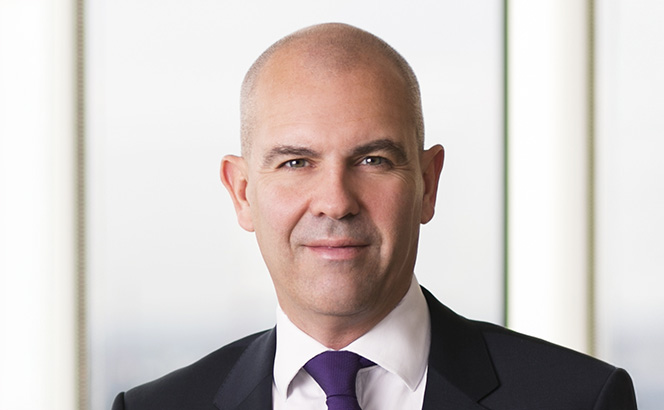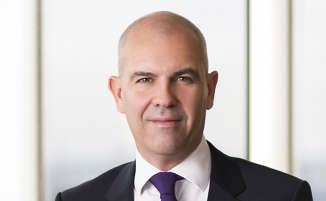For Mental Health Awareness Week, Vinson & Elkins London managing partner Nick Henchie talked to LB about recognising mental health issues, seeking support, the importance of openness and honesty, and supporting the next generation of lawyers facing similar challenges
Have you ever experienced mental health issues related to work?
When I look back on my career, I definitely had mental health struggles from very early on, but I don’t think I properly recognised that I had until I started having some therapy six months ago. There was never a crisis moment as such – worrying, anxiety, imposter syndrome, and stress are things I have lived with for many long years. On the train to work or after work I would often have a little cry to myself, and think, ‘God, I just wish I didn’t feel like this,’ but for decades I just accepted it as being part and parcel of the job – the price you pay.
I also mistakenly thought severe anxiety was a good thing because it spurred me on and motivated me to get up early, work long hours and get out of my comfort zone. This wasn’t instinct for me; it was a fear of failure more than anything.
In therapy, I learnt that this extreme level of anxiety and stress was not normal or helpful. Severe anxiety can lead to not sleeping or eating properly, and not being able to enjoy relaxing outside of work. It’s that churning feeling when you don’t eat because you’re so worried about something, usually irrationally. At times, it became a downward spiral, and my worries were totally out of proportion. Yet I thought it was ok to harness the anxiety to help me focus and work hard, to go above and beyond what others were doing. Until I started therapy, I didn’t realise that, for me, anxiety was not a source of strength, but a constant and overwhelming feeling that was not helping my performance at all but hindering it.
A couple of months ago, I was diagnosed with ADHD, which can be a real exacerbator of anxiety. Now, with that diagnosis and therapy, a lot of what I’ve experienced over 30 years in the law is starting to make sense for the first time and I have strategies to help. The reason I’m doing this interview is because I hope I can encourage others who are struggling to see a professional. There are so many different types of therapy available which can help others avoid what I have experienced or manage anxiety more effectively. The difference it has made to my life is remarkable.
When did you realise it was time to seek support for your mental health?
When I realised that my way of dealing with my issues was affecting my family, not just me. I could always get up in the morning and get on that 6am train, no matter how I was feeling inside. I always had the mental strength to get to work to help clients and work as hard as I needed to and to win cases. But at the end of the day, I’d come home and it was my family who would get the fallout of that ‘bottling it up’ approach. I was present, but very often not there. I came to realise it wasn’t ok for me to spend all day at work and then the limited time at home to just be wrapped up in my issues living in a black fog. I thought my therapy was home, which can be part of therapy, but sometimes it goes beyond what is fair on the family.
I would also feel guilty for the way that I felt when comparing my struggles to those of others. What right did I have to worry about anything? But I’ve learnt that you’re entitled to have feelings and it’s not about comparing yourself to everyone. If that were the barometer you might never seek help. If you wake up in the morning feeling despair about the day ahead, that is your reality, and it doesn’t help to compare it to anyone else.
What advice would you give to lawyers who may be feeling the same way you did?
There are so many tools, techniques and people out there who can help you. A trained therapist can explain to you how the brain works, and talk you through things, and making sense of these problems makes it feel more manageable. For me, this gave me a boost, especially after 30 years not talking about it meaningfully, and knowing so many others have trodden your same path; you don’t feel alone.
My real goal now is making sure young lawyers know from early on in their careers that they will turn into businesspeople one day, so that they can start developing the necessary skillset earlier than I did. It wasn’t so much the substance of the work I was doing that worried me – I loved that; it was always more about the future and winning business and thinking more broadly about my career. I’d think, ‘What’s the future going to look like after this or that case? Am I entrepreneurial enough? Am I sustainable?’
As a young senior associate, it can be hard to win business. It becomes less about how good a technical lawyer you are, and more about your business skills. No one goes into law because they want to go out and win business. It’s that awakening as you realise that one day it’s not enough to be a good lawyer in terms of just giving advice and being good with clients. There’s another step to this: if you want a long, sustainable career at a top law firm, you must generate business and be entrepreneurial. That can be very scary.
Other things have helped me. Exercise and a healthy diet can be great for mental health. I always go for a run when I’m at my lowest. There are some great podcasts that can help. But the best thing I’ve done is to really open up and talk to people and be honest about your struggles. Don’t suffer in silence and take everything home and think you can cope and just ‘man up’ in the office. I did that over a long period, and it was unfair on those close to me. Thankfully, I have a very understanding family that has supported me but I’m in a much better mental space now, having got professional help.












